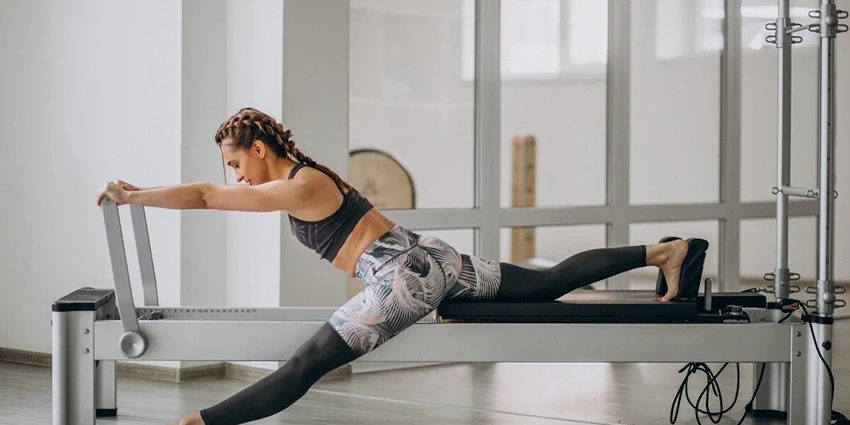Yoga, an ancient practice, has long been recognized as a potent antidote to stress. Combining modern stress-reducing techniques such as body movement, breath control, and mind clearing, yoga offers a holistic approach to wellness. At Rac Women, we’ve seen firsthand the transformative power of yoga in managing stress and promoting overall well-being.
In This Article
Understanding Stress
Stress, a prevalent issue in today’s fast-paced world, can have detrimental effects on both our physical and mental health. Whether caused by work pressures, personal issues, or external factors, stress manifests in various ways, often leading to ailments and decreased quality of life.

How Yoga Addresses Stress
Exercise and Yoga
Hatha Yoga, the physical practice of yoga postures, offers a variety of styles. Some focus on slow stretching, while others are more dynamic, providing an intense workout. No single yoga style is universally best for stress relief; it’s essential to choose one that aligns with your physical fitness and personality. Regular exercise, including yoga, releases endorphins, the body’s natural mood enhancers. Moreover, yoga specifically targets areas of tension in the body, releasing stress and alleviating pain.
| Yoga Style | Focus | Benefits |
| Hatha Yoga | Stretching and Physical Postures | Reduces physical tension, releases endorphins |
| Vinyasa Yoga | Flowing sequences | Enhances flexibility, improves mental focus |
| Yin Yoga | Deep stretches held for longer periods | Releases deep-seated tension, calms the mind |
Breath Control in Yoga
Pranayama, or breath work, is a cornerstone of yoga. Beyond the mat, the principles of pranayama can be applied to everyday life, enhancing awareness of the breath as a relaxation tool. While breathing is involuntary, bringing attention to it allows for regulation, especially during stressful situations. Deep, focused breathing is a simple yet effective method to counteract stress.
Clearing the Mind with Yoga
Yoga offers multiple techniques to calm a racing mind. Breath work, as mentioned, is one such method. Each breath anchors us to the present, preventing the intrusion of past regrets or future anxieties. Yoga poses, or asanas, also serve as a form of meditation. The physical effort and mental concentration required to hold a pose push away other thoughts, giving the brain a much-needed break.
Relaxation through Yoga
Every yoga session concludes with savasana, or corpse pose. Participants lie down, relax, and focus on their breath, providing a complete release for both body and mind. This practice equips yogis with tools to combat daily stressors effectively.
Yoga Nidra, another yoga practice, offers an extended relaxation period and serves as an introduction to meditation, a renowned stress reducer.

Delving Deeper into Yoga Techniques
Hatha Yoga for Stress Relief
Hatha Yoga, one of the most popular forms of yoga, emphasizes physical postures and breath control. It serves as an excellent starting point for beginners and offers numerous benefits:
| Benefits of Hatha Yoga | Description |
| Physical Toning | Strengthens and tones the body |
| Flexibility | Enhances joint and muscular flexibility |
| Mental Calmness | Reduces anxiety and promotes mental clarity |
| Stress Reduction | Alleviates physical and mental stress |
Pranayama: The Breath Work
Pranayama, the art of breath control, is integral to yoga. It’s not just about breathing in and out; it’s about channeling the life force (prana) within us.
| Pranayama Technique | Benefits |
| Anulom Vilom (Alternate Nostril Breathing) | Balances the left and right hemispheres of the brain |
| Kapalbhati (Skull Shining Breath) | Detoxifies the body and improves digestion |
| Bhramari (Bee Breath) | Calms the mind and reduces tension |
Taming the Racing Mind with Yoga
The mind is often the primary source of stress. Yoga offers techniques to calm it:
| Technique | Description |
| Meditation | Focusing the mind to cultivate awareness |
| Mantra Chanting | Repeating sacred sounds to elevate consciousness |
| Visualization | Creating mental images to promote relaxation |
Savasana: The Ultimate Relaxation Pose
Savasana, or the corpse pose, is more than just lying down. It’s about total relaxation, where every part of the body is at rest.
| Steps for Savasana | Benefits |
| Lie Down Flat | Promotes physical relaxation |
| Close Your Eyes | Reduces sensory distractions |
| Deep Breathing | Calms the nervous system |
| Mindful Awareness | Brings attention to the present moment |
Yoga Poses for Stress Relief
Yoga offers a plethora of poses, each with its unique benefits. Here are some poses specifically tailored for stress relief:
| Yoga Pose | Description | Benefits |
| Marjaryasana (Cat Pose) | A pose that mimics the stretching posture of a cat | Soothes the lower back and relieves stress |
| Bitilasana (Cow Pose) | Complements the Cat Pose, emphasizing the inhalation part | Warms the spine and calms the mind |
| Balasana (Child’s Pose) | A resting pose with the forehead touching the ground | Quiets the brain and reduces stress |
| Bhujangasana (Cobra Pose) | A back-bending pose with the chest lifted | Opens up the chest and eases breathing |
| Uttanasana (Standing Forward Bend) | Bending forward with the head towards the knees | Releases tension from hamstrings and cools the nervous system |

FAQs
Yoga combines physical postures, breath control, and meditation to activate the parasympathetic nervous system, reducing the stress hormone cortisol.
Poses like Balasana (Child’s Pose), Savasana (Corpse Pose), and Pranayama techniques are particularly effective for stress relief.
Yes, regular yoga practice can alleviate symptoms of chronic stress and anxiety by promoting relaxation and improving mental clarity.
While daily practice is ideal, even practicing 2-3 times a week can offer significant stress-relieving benefits.
Ellen Crandall
Meet Ellen, your fitness compass in the world of athletics, training, and gym culture. With a commitment to well-being and a penchant for all things workout-related, Ellen is here to guide you on your journey to a healthier, fitter you. Join the fitness revolution, led by Ellen, and embrace the power of an active lifestyle.




